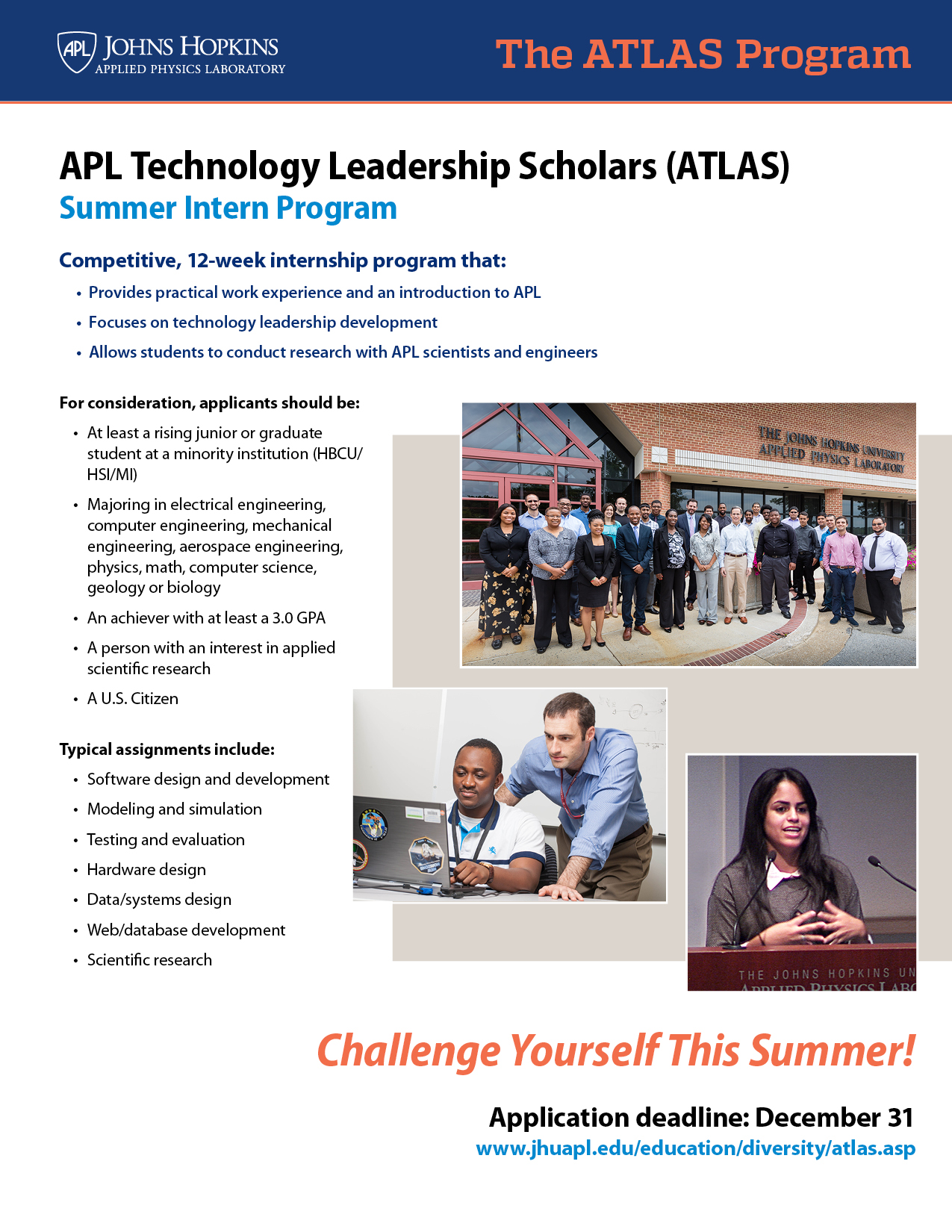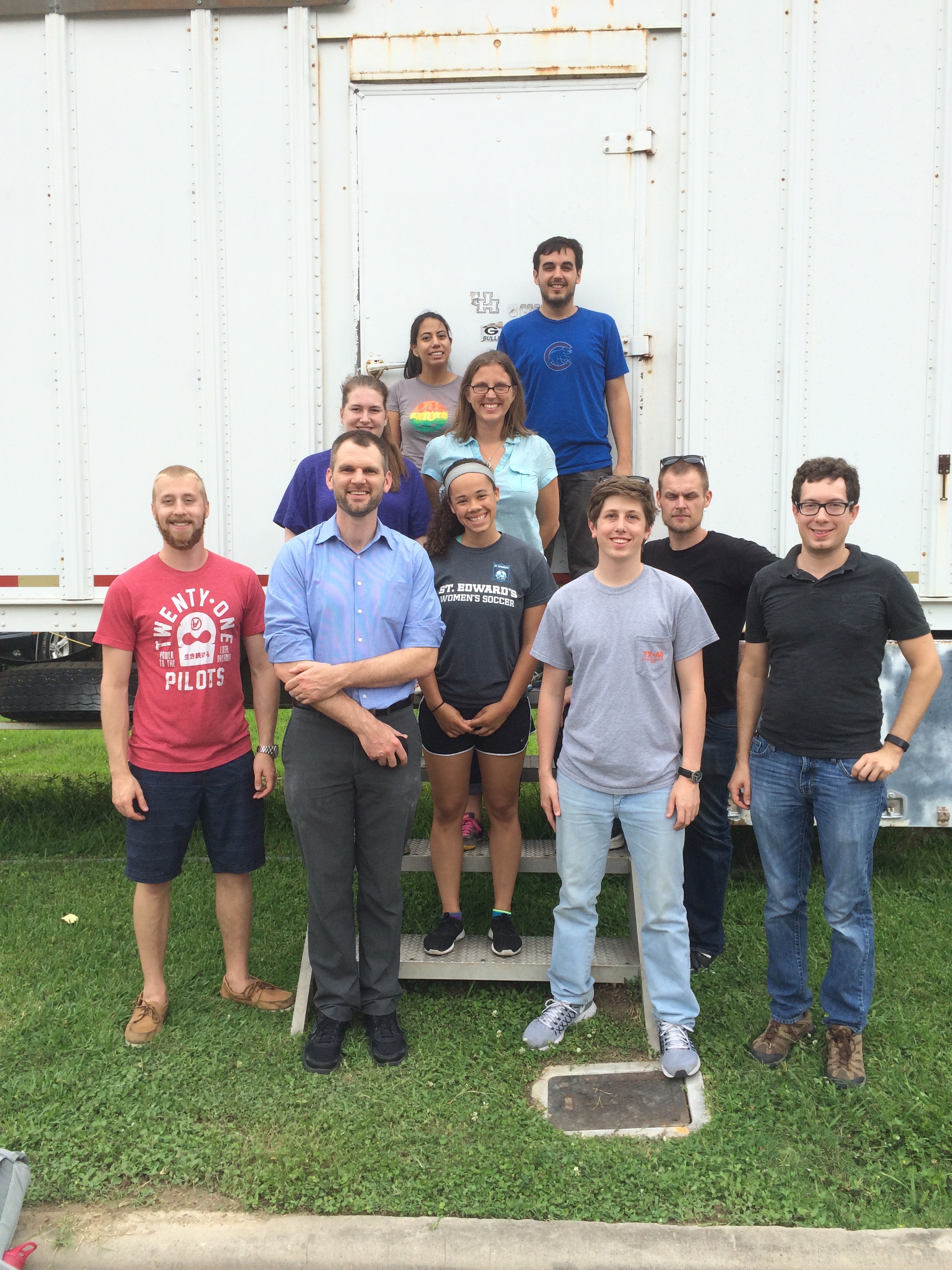The Johns Hopkins University Applied Physics Laboratory (JHU/APL) is a not-for-profit research division of the world-renowned Johns Hopkins University. Located in Laurel, Maryland, JHU/APL is one of the nation’s premier centers for systems engineering integration, technology research and development, and analysis. With a staff of 6,000, annual funding over $1.08 billion, and a wealth of intellectual capital, JHU/APL has served as trusted advisors and technical experts to the government for more than 70 years.
JHU/APL is currently seeking full-time students with a strong academic record for our APL Technology Leadership Scholars (ATLAS) Internship Program. The ATLAS Internship Program is offered to well-qualified, highly motivated undergraduate and graduate students attending Historically Black Colleges and Universities (HBCUs), Hispanic-Serving Institutions (HSIs), and Minority Institutions (MIs) who have an interest in applied scientific research. This highly competitive 10 – 12 week paid summer internship program focuses on building technical and leadership skills that will uniquely prepare students for careers in science and engineering.
Our goal is to help students understand and appreciate their own aptitudes, grow personally and professionally, and envision their future careers. In addition to performing cutting-edge research, ATLAS summer interns attend professional development seminars that teach them how to operate effectively in professional and business environments and address interpersonal skill development, interviewing skills, and resume preparation. They also get the chance to practice communication skills such as technical writing, public speaking, and presenting.
ATLAS applicants must have completed at least their sophomore year of college prior to beginning the summer internship, have a minimum 3.0 cumulative grade point average, and be pursuing a degree in one of the following technical fields:
- Aerospace Engineering
- Computer Engineering
- Electrical Engineering
- Mechanical Engineering
- Computer Science
- Mathematics
- Biology
- Geology
- Physics
Having successfully hired more than 30 interns as full time employees, the ATLAS Internship Program presents an excellent opportunity for potential full time employment to follow.
Videos of ATLAS alumni who are now full time employees can be viewed on YouTube. Applications should be submitted online by December 31st. http://www.jhuapl.edu/education/diversity/atlas.asp
I appreciate the time and effort you will put forth in passing this information along and look forward to receiving some strong applicants from your respective university. Please contact me if you should have any questions.
Thank You,
Nykia Jackson Brooks, D.Eng., PMP
ATLAS Internship Program Technical Coordinator
The Johns Hopkins University Applied Physics Laboratory
Engineering and Advanced Development Group
Asymmetric Operations Sector
(240) 228-9255 Office
*************************************
As with all such postings, SEU and the School of Natural Sciences does not endorse or guarantee the quality of any advertised here. We pass along the information for interested students. Make sure to follow up with the appropriate contacts to figure out if such programs are a good fit for you.



